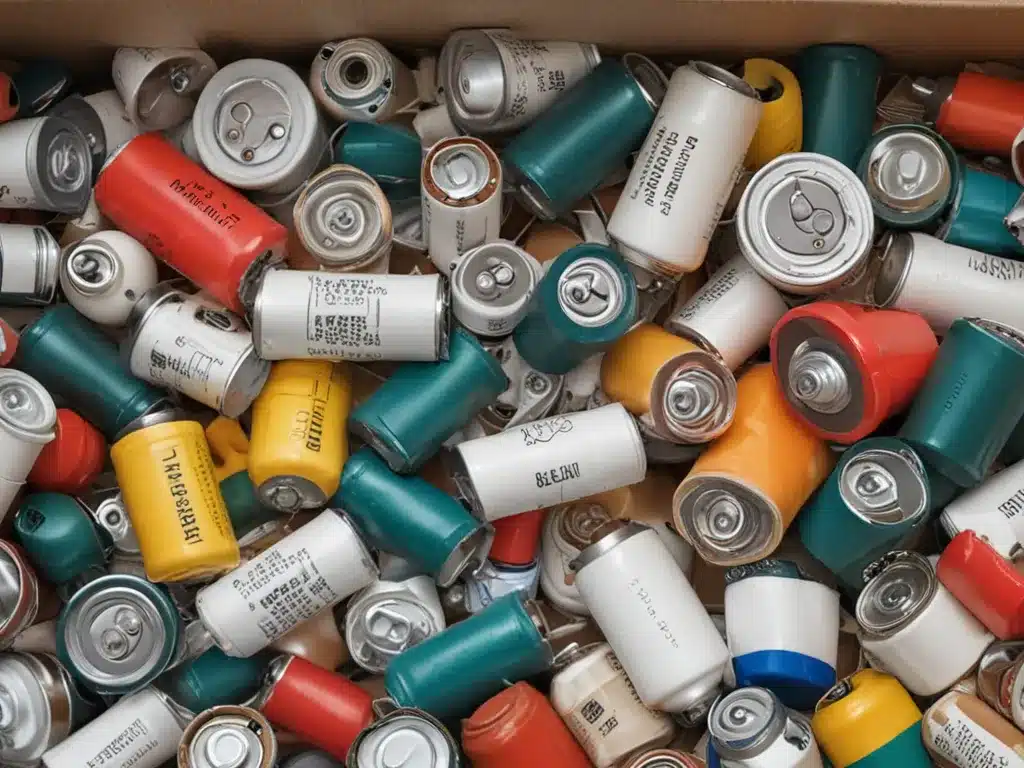Introduction
Disposing of hazardous household materials like batteries and light bulbs requires special care to avoid harming the environment or human health. As a conscientious consumer, I make an effort to properly recycle these items to keep toxic heavy metals, chemicals, and other dangerous substances out of landfills and incinerators. In this article, I will share what I have learned about the safe disposal of batteries, CFL bulbs, fluorescent tubes, and incandescent bulbs.
Why Proper Disposal is Important
Batteries and light bulbs contain materials that can be hazardous if released into the environment. For example:
-
Batteries often contain heavy metals like mercury, lead, cadmium, and nickel that can contaminate soil and water. Battery acid is also corrosive and toxic.
-
CFL bulbs (curly compact fluorescent lamps) contain a small amount of mercury that can be released if the bulb breaks.
-
Fluorescent tubes contain mercury vapor.
-
Incandescent bulbs do not contain mercury but the glass could break and litter landfills.
If these materials enter landfills or incinerators, they can leach into soil and contaminate groundwater. When hazardous chemicals are burned, they enter the air and fall back to earth as pollutants. Proper recycling prevents these consequences and reduces the need for new raw materials.
How to Dispose of Batteries
Most household batteries, including alkaline, lithium, button cell, 9V, and rechargeable batteries, can be taken to a municipal household hazardous waste facility or recycling center. Some retailers, such as Best Buy, Home Depot, or Staples, may also collect batteries for recycling.
Before bringing batteries for disposal, tape the terminals with non-conductive electrical tape to prevent fires. Keep batteries in a sturdy plastic bag or container, away from metal objects.
Never put batteries in the trash or compost. Avoid throwing loose batteries in a closet or drawer where they can come into contact with metal and short circuit. Store used batteries in a safe container until you can recycle them.
Rechargeable batteries can often be reused many times. Consider investing in rechargeable batteries paired with a charger to reduce waste. However, when rechargeable batteries no longer hold a charge, they must be recycled properly.
Recycling CFL and Fluorescent Light Bulbs
CFLs and fluorescent tubes contain mercury vapor, so they must be disposed of at hazardous waste facilities or other locations accepting these bulbs. I take these bulbs to a local recycling center that responsibly handles the mercury.
Before disposal, place the bulb in a sealed plastic bag to prevent accidental breakage and mercury vapor release. Fluorescent tubes can also be put back in their original sleeve or box.
Under a federal law called the Universal Waste Rule, some retailers are required to accept CFLs for recycling. Check with local hardware, home improvement, or lighting stores to find locations accepting used bulbs. Some municipalities and waste management companies also have CFL recycling programs.
I try to limit my purchases of CFLs and fluorescent bulbs to cut down on the need for hazardous disposal. When the bulbs do burn out, I make sure to recycle them through the proper channels.
Disposing of Incandescent Light Bulbs
Standard incandescent light bulbs do not contain mercury or other hazardous substances. However, the glass could break in landfills. I recommend recycling incandescent bulbs when possible to divert glass waste from landfills.
My local municipal recycling program accepts incandescent bulbs. I place bulbs in a sealed container before taking them to the recycling center to prevent breakage. Hardware stores, lighting retailers, and other locations may also accept incandescent bulbs for recycling.
Following Proper Disposal Procedures Protects the Environment
By taking hazardous household waste like batteries, CFL bulbs, and fluorescent tubes to responsible recycling facilities, I can help keep these harmful materials out of landfills and incinerators. Although recycling does take more effort than tossing items in the trash, I think it is worth it to avoid polluting our soil and groundwater. With some research and planning, we can all make better disposal decisions and reduce our environmental impact.







